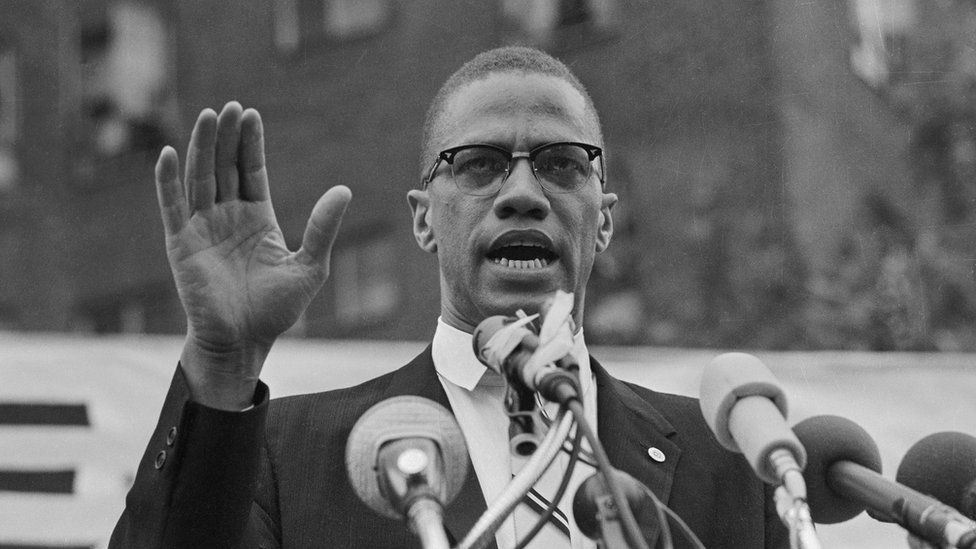Malcolm X's 1965 assassination: Convictions of two men quashed
- Published

Malcolm X was 39 when he was gunned down in New York City
Two men convicted of the murder in 1965 of the US civil rights leader Malcolm X have had their convictions quashed.
Muhammad Aziz and Khalil Islam did not get the justice they deserved, the Manhattan District Attorney said.
The State Supreme Court said a reinvestigation found "significant evidence that was not known at the time of the trial" and which would likely have seen the men acquitted.
Malcolm X was shot dead at a New York City ballroom in front of his family.
Aziz and Islam - along with a third man, Thomas Hagan - were convicted of the murder, and sentenced to life in prison.
The three men - members of the Nation of Islam political and religious movement - have all since been paroled. Islam died in 2009.
State Supreme Court Justice Ellen Biben said if the newly uncovered evidence had been presented at trial, it would have created a probability that the "verdict would have been more favourable".
She told the men she regretted the court could not fully undo the "serous miscarriage of justice... and give you back the years that were lost".
Manhattan District Attorney Cyrus Vance apologised for what had been "serious, unacceptable violations of law and the public trust" and said the men had not got the justice they deserved.
A review of the convictions was launched in 2020, after the District Attorney met representatives of the Innocence Project, a non-profit legal group campaigning for justice for individuals it said had been wrongly convicted.
Earlier this year Malcolm X's daughters requested that the murder investigation be reopened in light of new evidence.
They cited a deathbed letter from a man who was a policeman at the time of the 1965 killing, alleging New York police and the FBI conspired in the murder.
Malcolm X was a charismatic advocate for black empowerment. After years as the prominent spokesman for the Nation of Islam - which advocated separatism for black Americans - his views later became more moderate. He was 39 when he was killed.
At a ceremony in New York, a blue light marked the spot where Malcolm X fell, as Naomi Grimley reports
- Published22 February 2015